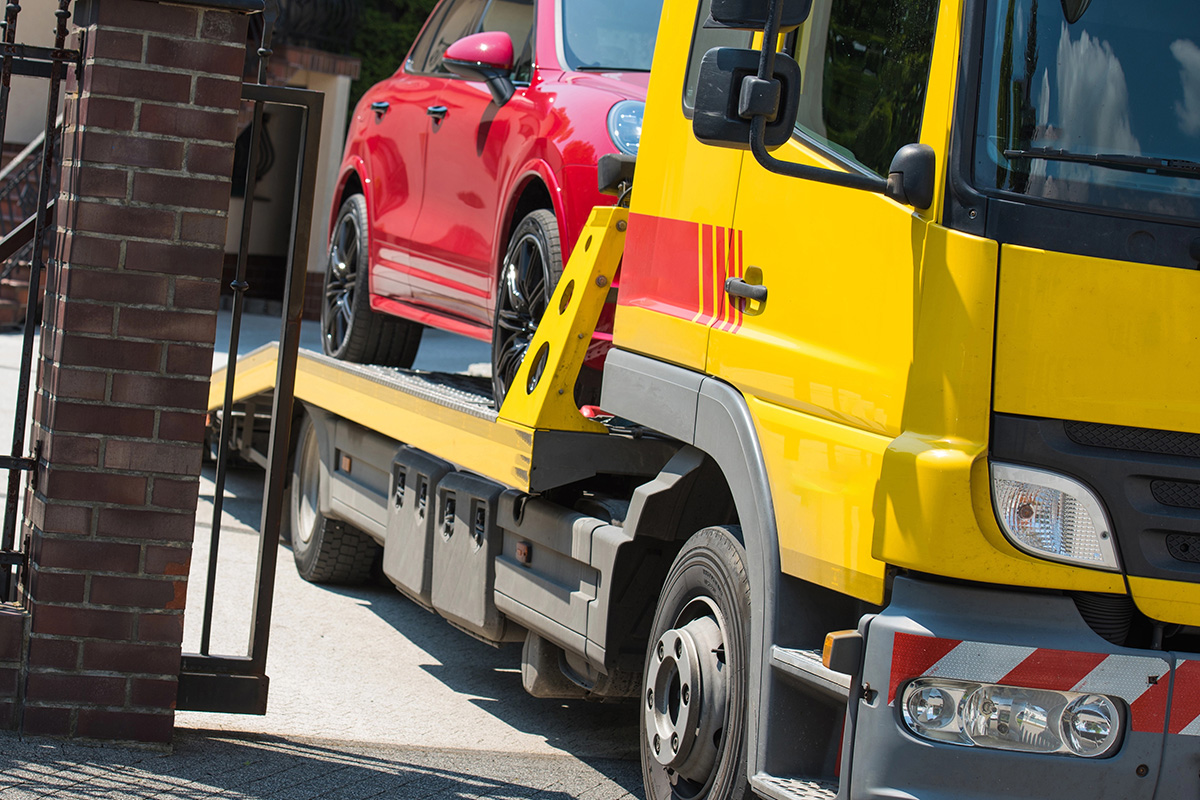It’s a situation no one wants to be in. You’re stranded on the side of the road, your car won’t move, and your day has come to a grinding halt. Once you’ve confirmed that you’re safe, the very next thought that flashes through your mind is almost always: “How much is this going to cost?” While dealing with this stress, knowing you can rely on Tyler towing services can offer peace of mind.
The fear of a huge, unexpected bill can add a whole new layer of stress to an already frustrating situation.
A reputable, professional towing company doesn’t just pull a number out of thin air. The final cost of a tow is actually a logical equation based on a clear set of variables. Think of this as pulling back the curtain on towing costs. We’ll break down the formula, explain what each part means, and show you exactly what you’re paying for.
Table of Contents
The Basic Towing Cost Equation:
At its core, the price of a standard tow is calculated with a simple formula:
Final Cost = Base Rate (Hook-Up Fee) + Mileage Rate + (Situational Factors)
Let’s break down each component of that equation.
The Base Rate (or “Hook-Up Fee”)
This is the fixed, foundational cost of the service. Think of it like the “service call fee” a plumber or electrician charges just to come to your house. This fee covers the essential, non-negotiable costs of getting a state-inspected, commercially insured tow truck and a trained, professional operator to your location.
- What it Covers: The operator’s time and expertise, the fuel used to get to you, the dispatch service, and the significant cost of maintaining and insuring the specialized equipment.
- What to Expect: For a standard passenger vehicle, a typical base rate can range from $75 to $150. This price can vary depending on your location and the time of day.
- This fee is charged as soon as the service is dispatched, whether your car needs to be towed 1 mile or 50 miles.
The Mileage Rate
This is the variable part of the equation that depends on the distance of your tow. Once your vehicle is hooked up and ready to go, the mileage charge begins.
- How it Works: The company will charge a set rate for every mile your vehicle is transported. Most companies start charging for mileage after a certain number has been met (e.g., the first 5 miles may be included in the base rate).
- What to Expect: The per-mile rate for a standard tow typically falls between $3 to $7 per mile.
- Example Calculation: If your tow is 12 miles and the mileage rate is $5/mile (and we assume the first 5 miles are included), your mileage cost would be (7 miles x $5) = $35.
Situational Factors (The “Degree of Difficulty”)
This is the component that accounts for any non-standard circumstances that require extra time, skill, or equipment. This is where pricing can vary the most, and it’s why getting a clear quote upfront is so important.
Common Situational Charges:
- Winching or Recovery: If your vehicle is in a ditch, stuck in mud, or not easily accessible on a flat surface, it will need to be “winched” out before it can be towed. This is a skilled and potentially dangerous process that requires extra time and equipment, and it will incur an additional fee, often billed based on the time and complexity of the recovery.
- Accident Scene Towing: Towing from an accident scene is often more expensive than a simple breakdown tow. The operator may have to navigate debris, wait for law enforcement to clear the scene, and take extra care with a heavily damaged vehicle, all of which takes more time and involves more risk.
Specialized Equipment Needs: Not all tows are equal
- A Flatbed Tow Truck is required for all-wheel-drive (AWD) or 4×4 vehicles, luxury or low-profile sports cars, and vehicles with significant damage that prevents them from rolling. Flatbeds are larger, more expensive trucks to operate, so the base rate is typically higher.
- Heavy-Duty Towing for large trucks, RVs, or buses is a completely different category and involves much larger, more powerful equipment with significantly higher operating costs.
- After-Hours, Weekends & Holidays: Just like with other emergency services, if you need a tow late at night, on a weekend, or on a holiday, you can expect to pay a surcharge. This covers the higher cost of having operators on-call during these off-peak hours.
Putting It All Together: A Real-World Example
Let’s imagine a common scenario: Your car breaks down on a weekday afternoon. It’s a standard sedan, and it’s safely on the shoulder of the road. You need it towed 10 miles to your trusted mechanic.
Here’s how the equation might look:
- Base Rate (Hook-Up Fee): $125
- Mileage Rate: $5 per mile, with the first 5 miles included.
- (10 total miles – 5 included miles) = 5 chargeable miles
- 5 miles x $5/mile = $25
- Situational Factors: None. It’s a standard, straightforward tow.
Estimated Total Cost: $125 (Base) + $25 (Mileage) = $150
This is the kind of transparent calculation a professional towing company can provide you with right over the phone.
The final price of a tow is not a mystery. It’s a reflection of the equipment, expertise, and time required to safely and professionally handle your specific situation. By understanding the components of the towing cost equation, you can feel confident that you’re being treated fairly and can focus on the most important thing: getting yourself and your vehicle safely off the road.
Frequently Asked Questions About Towing
Will my car insurance cover the cost of a tow?
It depends on your policy. If you have “”Roadside Assistance”” coverage as part of your auto insurance policy, it will typically cover most or all of the cost of a standard tow, up to a certain mileage limit. Whether you need roadside in Tyler services or a long-distance tow, you can either call the number on your insurance card, or you can call a towing company directly, pay for the service, and submit the receipt to your insurance company for reimbursement.
What’s the difference in cost between a simple tow and other roadside assistance services?
Services like a jump-start for a dead battery, a tire change, a fuel delivery, or a lockout service are typically charged as a flat-rate, one-time service call. These are almost always less expensive than a full tow because they don’t involve transporting the vehicle over a distance, which often require a tow truck in Tyler.
Do I have to let the tow truck take my car to the shop they recommend?
Absolutely not. You, the vehicle owner, have the legal right to have your car towed to any location of your choosing—whether it’s your home, your regular mechanic, or a dealership. Be wary of any operator who insists on taking your car to a specific, unsolicited shop.
I have a roadside assistance membership (like AAA). How does that work?
A membership like AAA works similarly to insurance coverage. Your membership level entitles you to a certain number of tows per year, up to a specific mileage limit (e.g., 5 miles for a basic plan, up to 100 or 200 miles for a premium plan). When you call for service, you simply provide your membership number.
How can I be sure I’m not being overcharged or scammed?
This is a valid concern. The best way to protect yourself is to follow these steps:
- Get a Quote Upfront: When you call, provide as much detail as possible about your situation and ask for a comprehensive quote over the phone.
- Choose a Reputable Company: Look for a company with a professional website, clear branding on their trucks, and positive local reviews.
- Ask for an Itemized Receipt: Any professional company will have no problem providing you with a clear, itemized receipt that breaks down the base rate, mileage, and any additional charges.




